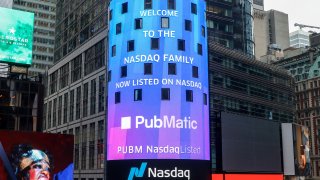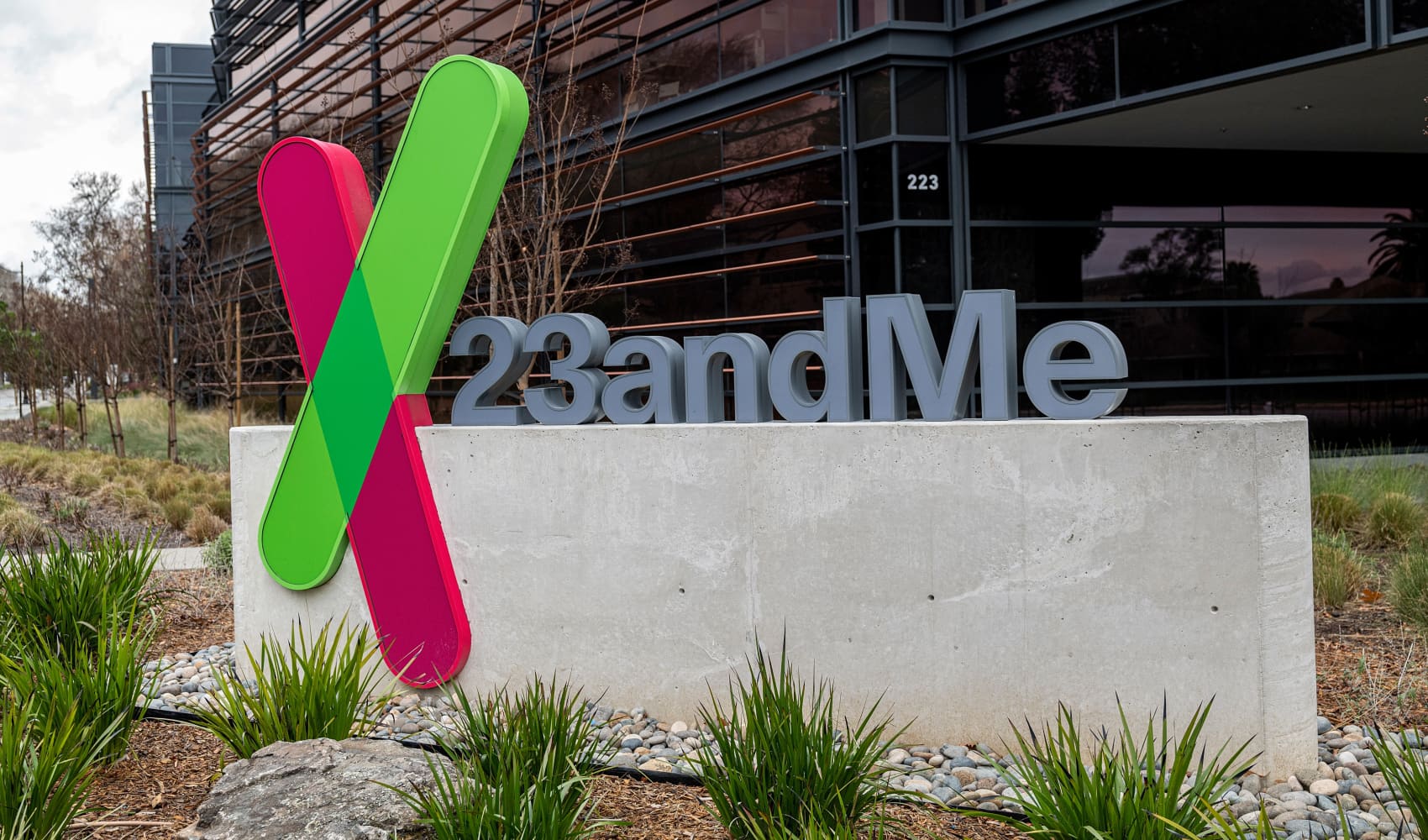
- PubMatic, a sell-side advertising platform that runs real-time programmatic ad transactions, launched its initial public offering on Wednesday.
- The company’s stock opened at $25.12 and shot up after it started trading.
- The 14-year-old company says its clients include Verizon Media Group and News Corp.

Ad-tech company PubMatic shares popped after the company launched its initial public offering Wednesday.
PubMatic, which runs a sell-side advertising platform that runs real-time programmatic ad transactions, was priced at $20 per share, but opened at $25.12, and at one point rose more than 65% to $33.16 Wednesday after debuting on the Nasdaq under the symbol "PUBM." The company had sought to raise roughly $115 million. Shares ended the day up more than 47%, giving the company a market valuation over $1.4 billion.
The 14-year-old company allows publishers and app developers to sell space to advertisers across media, including display or video ads on desktop, mobile app, mobile web, or connected TV. The company generated $93 million in revenue in the first nine months of the year, a 16% increase from the same period last year.
By way of comparison, one of the company's direct competitors, Magnite, is valued at $2.1 billion and generated revenues of $140 million in the first nine months of the year, up 29%. The Trade Desk, which is the most valuable pure-play ad tech company but operates in a slightly different area, boasts a market cap of $41.6 billion and generated $516 million in the first nine months of the year, for growth of 16%.
Money Report
PubMatic's clients include publishers like Verizon Media Group and News Corp and app makers like Electronic Arts and Zynga. The Verizon relationship is especially important, making up 28% of its revenue in 2019 and 21% of its revenue in the first nine months of 2020.
PubMatic competes with divisions of Google along with other supply-side platforms like Magnite (which was formed as a product of a 2020 merger between public ad tech companies Telaria and Rubicon Project). It also competes with private companies in different markets across the world, it said in its prospectus.
PubMatic CEO and co-founder Rajeev Goel told CNBC that the Covid pandemic spurred its decision to go public. The company has been self-funding for over half a decade, plowing profits back into the company to spur growth.
"But we think the opportunity is so much bigger now than we had imagined at the beginning of the year, in part due to the coronavirus pandemic," he said. "We're spending more time on the internet. We're doing things for the first time on the internet that we've never done before ... and so that I think significantly expands the opportunity going forward. And so we want to be well capitalized and well positioned to take advantage of that opportunity."
About 55% of PubMatic's business comes from mobile web and app ads, and it also places ads on short-form digital videos. The company also has a fledgling connected TV business it started rolling out a few months ago. He said that business has a few dozen publishers working with it, including AMC and Glewed, and expects it to be another growth driver.
Infrastructure and transparency
Goel believes PubMatic's infrastructure and transparency set it apart from its competitors.
"Really what we've been building over the last 14 years is a global cloud platform that processes 134 billion ad impressions per day, a trillion advertiser bids per day," he said, extolling the benefits of building its own cloud infrastructure instead of relying on a provider like Amazon Web Services
"We think there are some unique characteristics to digital advertising that make it such that owning and operating your own infrastructure can create much better outcomes for customers."
Goel said PubMatic has moved beyond solely being a "supply-side" platform for publishers, and is working more closely with advertisers and agencies as well. That means instead of just working with the tech players on the other side of the ecosystem — the "demand-side" platforms that cater to advertisers, like The Trade Desk and Google's DV360 — it also has direct agreements with large agencies and advertisers.
Goel says because it's close to publishers, it can help advertisers better screen for low-quality ad placements — for instance, those that wouldn't be easy for consumers to see, or ad traffic that's generated mostly by bots.
"There's a whole host of things that we can do...that increases the advertiser's ROI, and causes them to spend more on our platform, which in turn allows us to generate more revenue for publishers," he said.
Competition is fierce, as publishers often work with more than one supply-side platform — An Advertiser Perceptions survey last year found on average publishers worked with six such platforms. Goel says that can number get much higher. "We have examples of customers where they're working with 70 or 80 different [supply-side] platforms, which is, you know, a crazy number," he said.
But he said advertisers and agencies are increasingly consolidating spending with fewer tech partners, so PubMatic is hoping to capture more of their spending through direct relationships. He said that their desire for transparency in the supply chain, content and fee transparency, quality of inventory, and platforms that span across channels globally are all huge drivers.
A late November research note from Craig-Hallum on Magnite said the entrance of PubMatic should bring more investor attention to the sector.
"Going forward, we believe [Magnite] can continue to take share in premium inventory, while Pubmatic can see success at the lower-end, providing opportunities for both entities to grow," the note says.
Goel says this mischaracterizes the company's business, and said in fact PubMatic is heavily focused on top publishers.
"That's where the advertisers spend the lion's share of their ad budgets," he said. "And then, number two, what we find is that it's a better opportunity for us to drive profitable growth, because the scale of those publisher relationships is obviously much bigger in the head of the market than it is in the long tail of the market."
Both mobile and desktop advertising could be hit by upcoming privacy changes from Google and Apple.
Goel said the company is hopeful users will willingly share their identity and opt into targeted advertising if they feel safe and in control of their data.
"I think we're going to see that consumers for the right sites that they trust, and where the value proposition is favorable, they will share their identity," he said.
Correction: Due to an editing error, the valuation of PubMatic after its first day of trading was misstated. The proper valuation is over $1.4 billion.






